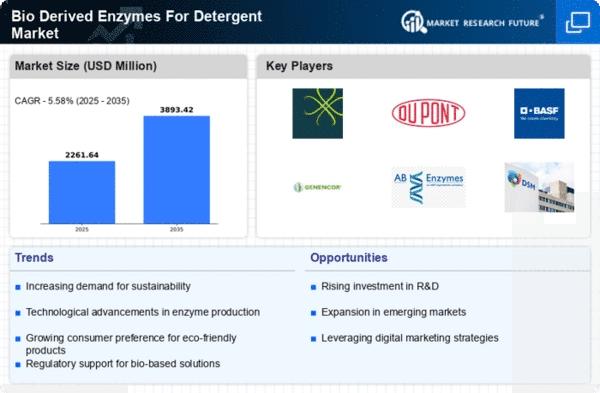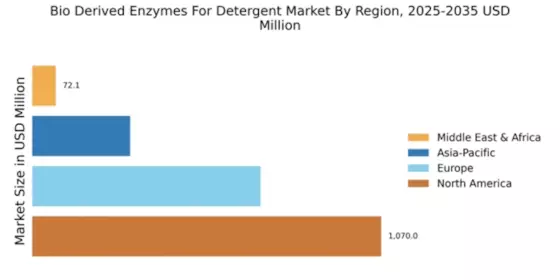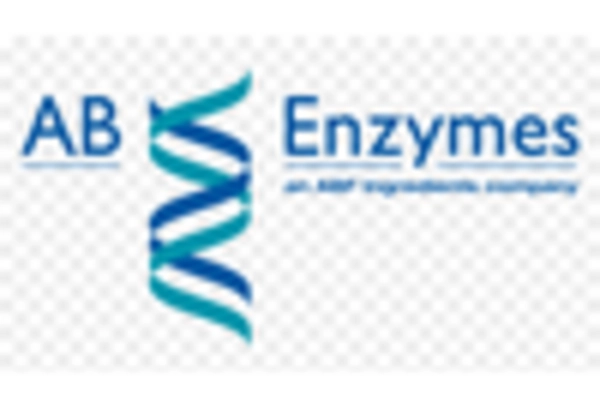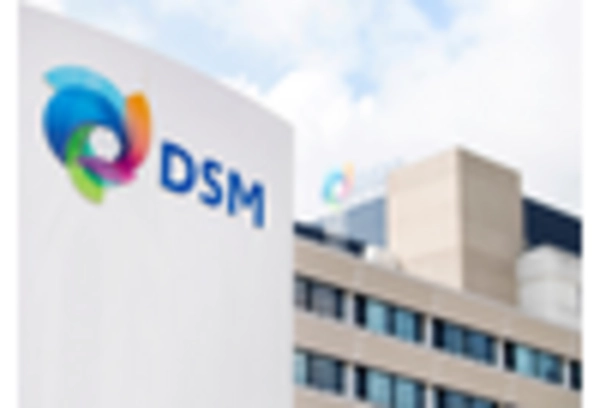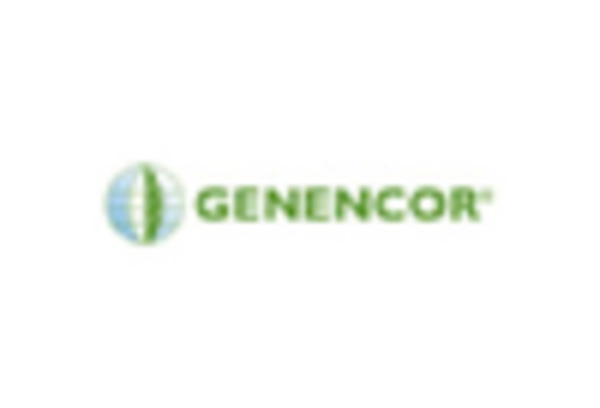Market Growth Projections
The Global Bio Derived Enzymes For Detergent Market Industry is projected to experience substantial growth in the coming years. With an estimated market value of 2.14 USD Billion in 2024, the industry is on a trajectory towards reaching 3.7 USD Billion by 2035. This growth is supported by a compound annual growth rate (CAGR) of 5.09% from 2025 to 2035. Such projections indicate a robust demand for bio-derived enzymes, driven by factors such as sustainability, technological advancements, and consumer preferences. The market's expansion reflects a broader trend towards environmentally friendly solutions in the detergent sector.
Consumer Awareness and Education
Consumer awareness and education significantly influence the Global Bio Derived Enzymes For Detergent Market Industry. As consumers become more informed about the benefits of bio-derived enzymes, including their effectiveness and environmental advantages, demand for these products increases. Educational campaigns by manufacturers and environmental organizations play a pivotal role in shaping consumer perceptions. This heightened awareness is likely to drive market growth, as consumers actively seek out products that align with their values. The industry is poised for expansion, with projections indicating a market value of 2.14 USD Billion in 2024, reflecting the impact of informed consumer choices.
Diverse Applications Across Industries
The versatility of bio-derived enzymes contributes to the expansion of the Global Bio Derived Enzymes For Detergent Market Industry. These enzymes find applications not only in household detergents but also in industrial cleaning, textile processing, and other sectors. This broad applicability enhances market potential, as manufacturers explore new avenues for enzyme utilization. The growing recognition of the effectiveness of bio-derived enzymes across various applications is likely to drive demand. As the market evolves, it is anticipated to reach a value of 3.7 USD Billion by 2035, underscoring the diverse opportunities within the industry.
Rising Demand for Eco-Friendly Products
The Global Bio Derived Enzymes For Detergent Market Industry experiences a notable increase in demand for eco-friendly cleaning products. Consumers are increasingly aware of environmental issues and are seeking sustainable alternatives to traditional detergents. Bio-derived enzymes, being biodegradable and derived from renewable resources, align with this trend. This shift is reflected in the market's projected growth, with an estimated value of 2.14 USD Billion in 2024. As consumers prioritize sustainability, manufacturers are compelled to innovate and incorporate bio-derived enzymes into their formulations, thereby enhancing their market presence and contributing to the overall growth of the industry.
Regulatory Support for Sustainable Practices
Regulatory frameworks increasingly support the use of sustainable practices within the Global Bio Derived Enzymes For Detergent Market Industry. Governments worldwide are implementing policies that encourage the adoption of environmentally friendly products, including bio-derived enzymes. Such regulations not only promote sustainability but also provide incentives for manufacturers to invest in bio-based solutions. This regulatory support is expected to contribute to the market's growth, with a projected compound annual growth rate (CAGR) of 5.09% from 2025 to 2035. As regulations evolve, the industry is likely to witness a surge in the development and utilization of bio-derived enzymes.
Technological Advancements in Enzyme Production
Technological advancements play a crucial role in the Global Bio Derived Enzymes For Detergent Market Industry. Innovations in enzyme production processes, such as fermentation technology and genetic engineering, enhance the efficiency and efficacy of bio-derived enzymes. These advancements not only improve the performance of detergents but also reduce production costs, making them more accessible to manufacturers. As a result, the market is expected to grow significantly, with projections indicating a rise to 3.7 USD Billion by 2035. The continuous evolution of enzyme technology is likely to drive the adoption of bio-derived enzymes in various detergent applications.


